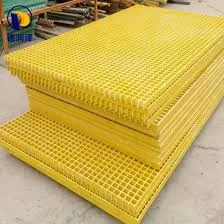
-
 Afrikaans
Afrikaans -
 Albanian
Albanian -
 Amharic
Amharic -
 Arabic
Arabic -
 Armenian
Armenian -
 Azerbaijani
Azerbaijani -
 Basque
Basque -
 Belarusian
Belarusian -
 Bengali
Bengali -
 Bosnian
Bosnian -
 Bulgarian
Bulgarian -
 Catalan
Catalan -
 Cebuano
Cebuano -
 China
China -
 China (Taiwan)
China (Taiwan) -
 Corsican
Corsican -
 Croatian
Croatian -
 Czech
Czech -
 Danish
Danish -
 Dutch
Dutch -
 English
English -
 Esperanto
Esperanto -
 Estonian
Estonian -
 Finnish
Finnish -
 French
French -
 Frisian
Frisian -
 Galician
Galician -
 Georgian
Georgian -
 German
German -
 Greek
Greek -
 Gujarati
Gujarati -
 Haitian Creole
Haitian Creole -
 hausa
hausa -
 hawaiian
hawaiian -
 Hebrew
Hebrew -
 Hindi
Hindi -
 Miao
Miao -
 Hungarian
Hungarian -
 Icelandic
Icelandic -
 igbo
igbo -
 Indonesian
Indonesian -
 irish
irish -
 Italian
Italian -
 Japanese
Japanese -
 Javanese
Javanese -
 Kannada
Kannada -
 kazakh
kazakh -
 Khmer
Khmer -
 Rwandese
Rwandese -
 Korean
Korean -
 Kurdish
Kurdish -
 Kyrgyz
Kyrgyz -
 Lao
Lao -
 Latin
Latin -
 Latvian
Latvian -
 Lithuanian
Lithuanian -
 Luxembourgish
Luxembourgish -
 Macedonian
Macedonian -
 Malgashi
Malgashi -
 Malay
Malay -
 Malayalam
Malayalam -
 Maltese
Maltese -
 Maori
Maori -
 Marathi
Marathi -
 Mongolian
Mongolian -
 Myanmar
Myanmar -
 Nepali
Nepali -
 Norwegian
Norwegian -
 Norwegian
Norwegian -
 Occitan
Occitan -
 Pashto
Pashto -
 Persian
Persian -
 Polish
Polish -
 Portuguese
Portuguese -
 Punjabi
Punjabi -
 Romanian
Romanian -
 Russian
Russian -
 Samoan
Samoan -
 Scottish Gaelic
Scottish Gaelic -
 Serbian
Serbian -
 Sesotho
Sesotho -
 Shona
Shona -
 Sindhi
Sindhi -
 Sinhala
Sinhala -
 Slovak
Slovak -
 Slovenian
Slovenian -
 Somali
Somali -
 Spanish
Spanish -
 Sundanese
Sundanese -
 Swahili
Swahili -
 Swedish
Swedish -
 Tagalog
Tagalog -
 Tajik
Tajik -
 Tamil
Tamil -
 Tatar
Tatar -
 Telugu
Telugu -
 Thai
Thai -
 Turkish
Turkish -
 Turkmen
Turkmen -
 Ukrainian
Ukrainian -
 Urdu
Urdu -
 Uighur
Uighur -
 Uzbek
Uzbek -
 Vietnamese
Vietnamese -
 Welsh
Welsh -
 Bantu
Bantu -
 Yiddish
Yiddish -
 Yoruba
Yoruba -
 Zulu
Zulu
Exploring the Advantages of Fiberglass Vessels in Modern Watercraft Design
The Versatility and Advantages of Fiberglass Vessels
Fiberglass vessels have revolutionized the boating industry, offering a unique blend of strength, durability, and versatility. Made from reinforced plastic, fiberglass has become the material of choice for a wide range of marine applications, from small recreational boats to large commercial vessels. The properties of fiberglass make it an ideal candidate for boat construction, allowing for innovation and advancements in design and functionality.
One of the primary advantages of fiberglass is its lightweight nature. Compared to traditional materials like wood or metal, fiberglass boats are significantly lighter, which enhances their speed and fuel efficiency. This characteristic is particularly beneficial for recreational boaters who seek both performance and ease of handling. Additionally, the reduced weight makes fiberglass vessels easier to transport and maneuver on and off the water.
Durability is another key feature of fiberglass vessels. This material is resistant to corrosion, rot, and fading, which are common problems encountered in boats constructed from other materials. Fiberglass does not suffer from the same vulnerabilities as wood, which can warp and split over time, nor does it rust like metal. The longevity of fiberglass vessels means they require less maintenance, saving owners both time and money in the long run.
fiberglass vessel

Fiberglass also offers excellent design flexibility, allowing manufacturers to create complex shapes and intricate designs that are aesthetically pleasing and functional. The moldability of fiberglass means that boats can be produced in a variety of forms, accommodating different needs and preferences. Whether one is looking for a sleek racing yacht or a spacious family cruiser, fiberglass can be engineered to meet those specifications efficiently.
Moreover, fiberglass is better for the environment compared to some alternatives. While the production of fiberglass does have an ecological impact, its longevity and resistance to degradation mean that fewer vessels need to be produced over time. This durability helps reduce waste and contributes to more sustainable boating practices.
Safety is a paramount concern in the design of any vessel, and fiberglass boats excel in this area as well. Their buoyancy ensures that even in emergencies, they remain afloat. The non-slip surfaces often found on fiberglass decks add another layer of safety for those aboard.
In conclusion, fiberglass vessels exemplify the advancements in boating technology that cater to modern needs. Offering a combination of lightweight strength, durability, design versatility, and safety, they provide an excellent choice for boaters of all types. As the marine industry continues to evolve, fiberglass will undoubtedly remain at the forefront, shaping the future of watercraft innovation.









